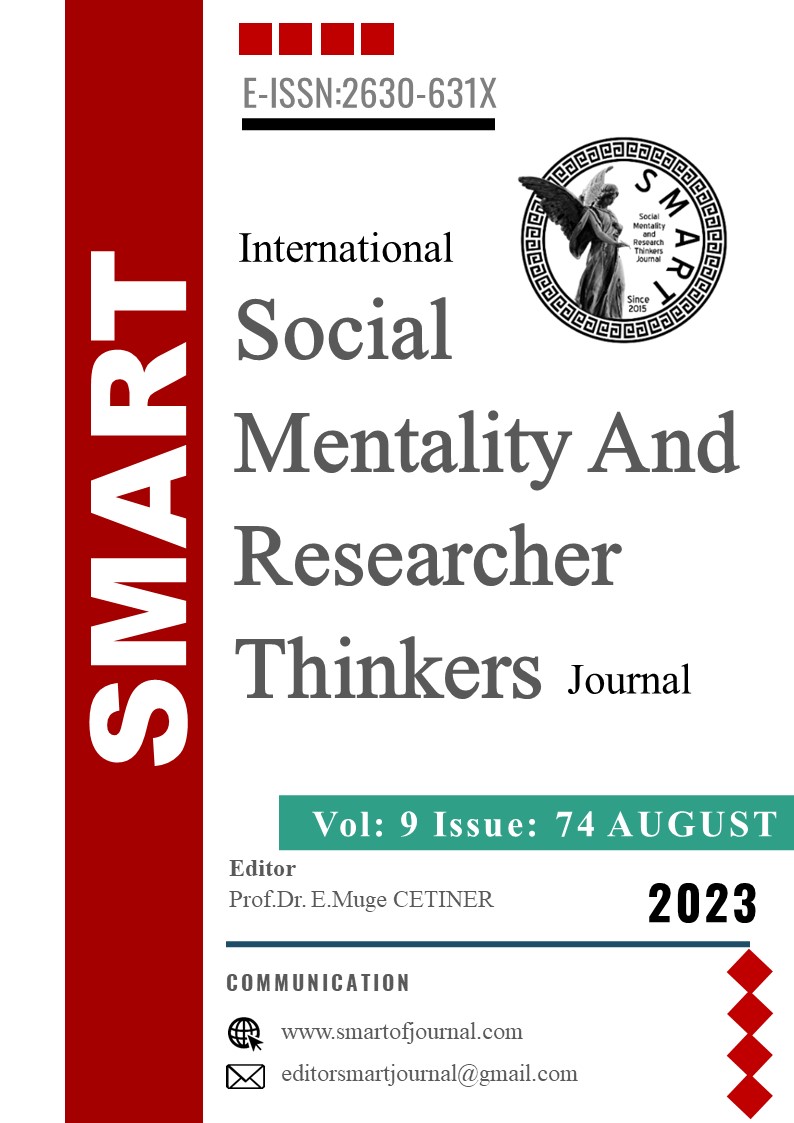Author :
Abstract
Geçmişten günümüze Türk toplumlarında aile, kadın ve evlilik kavramları önemli bir yer tutmuştur. Toplumların temel taşları olan bu kavramlar ülkelere, coğrafyalara, yaşam biçimlerine ve inanç sistemine göre biçimlenmiştir. Türk milletinin kültürel hafızasının oluşmasını sağlayan bu değerler bütünü, günümüz gelenek ve göreneklerin de temelini oluşturur. Eski Türk toplumlarından Büyük Selçuklulara ve Büyük Selçuklu Devleti’nden de Anadolu (Türkiye) Selçuklu Devleti’ne aktarılan bu miras Türk tarihi açısından da önemlidir. Anadolu (Türkiye) Selçuklu Devleti’nin aile, kadın ve evliliğe bakış açısını Anadolu insanının, temel değerlere saygı, kadına verilen değer, evlilik kutsiyeti gibi erdemleri bünyesinde barındırdığını göstermesi açısından da mühimdir. Anadolu (Türkiye) Selçuklu Devleti’nde kadının toplum içerisindeki yeri ve sorumlulukları, sosyal hayatın içerisindeki durumu, inanç sistemi bakımından edindiği yerin ne olduğu irdelenmiştir. Aile kavramı ve aile fertlerinin görevleri toplumun aileye bakış açısı değerlendirilmiştir. Evliliklerin her aşamasına değinilmiştir. Toplumun en önemli kurumlarından olan evliliğin geçmiş dönemlerde hangi evrelerden geçtiği, uygulamalarının nasıl olduğu ve günümüze kadar ulaşmasındaki etkileri bilmek milli hafıza için önem arz etmektedir. Araştırmanın konusu bu doğrultu ve bu anlayışla belirlenmiştir. Kaynaklar ışığında, kıyaslamalı bir biçimde yorumlamaya gayret gösterilmiştir. Zaman zaman örneklerle konunun somutlaştırılarak daha iyi anlaşılmasının sağlanmasına çalışılmıştır. Anadolu (Türkiye) Selçuklu Devleti’ndeki aile kavramı, kadın imgesi ve evlilik ritüelleriyle ilgili bilgilendirme ve yorumlama becerisi kazandırma hedeflenmiştir.
Keywords
Abstract
From the past to the present, the concepts of family, women, and marriage have held significant importance in Turkish societies. Shaped by countries, geographies, lifestyles, and belief systems, these fundamental elements have constituted the cultural memory of the Turkish nation, forming the basis for current traditions and customs. The heritage passed down from ancient Turkish societies to the Great Seljuks and from the Great Seljuk State to the Anatolian Seljuk State (Turkey) is also crucial in terms of Turkish history. Revealing the perspective of the Anatolian people towards family, women, and marriage, this legacy reflects essential values such as respect for core principles, the significance given to women, and the sanctity of marriage. The position and responsibilities of women within Anatolian Seljuk society, their status in social life, and their role in the belief system have been explored. The concept of family and the duties of its members have been evaluated in terms of society's perception of the family. The various stages of marriages have been discussed, and understanding how they were practiced in the past and their lasting effects up to the present is crucial for the national memory. The subject of this research has been determined in line with this approach and understanding, aiming to interpret the findings comparatively with the help of sources. At times, examples have been provided to make the subject more tangible and understandable. The objective is to impart knowledge and interpretation skills concerning the concept of family, the image of women, and marriage rituals in the Anatolian Seljuk State (Turkey).





